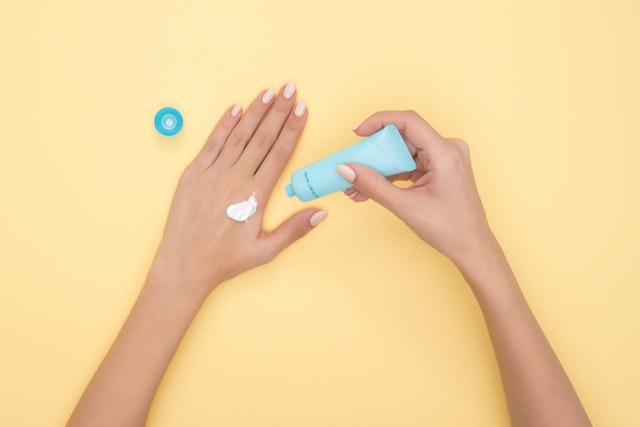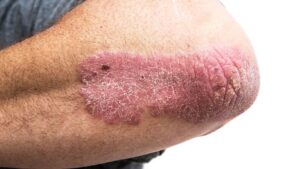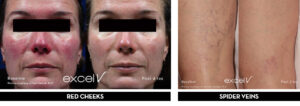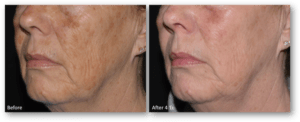
Healthy Skin Is Important
Your skin is an organ that comes into contact with the rest of the world. It holds your body fluids in, prevents dehydration and keeps harmful microbes out of your system. Without it, we would get infections.
Your skin is full of nerve endings that help you feel things like heat, cold and pain. If you couldn’t feel these things, you could get badly hurt and not even know it!
Why is healthy skin important?
Since your skin plays such an important role in protecting your body, you should keep it as healthy as you can. This will help you keep from getting sick or having damage to your bones, muscles and internal organs.
What you might not know about your skin
Skin is actually your body’s largest organ by size. Your skin helps keep your body temperature even. If you get too hot, blood vessels near the surface of the skin, called capillaries, enlarge to let the warm blood cool down.
Your skin also makes vitamin D when the sun shines on it. Vitamin D is important for the health of your bones and other parts of your body.
Keep it clean
Washing your skin, especially your hands, is very important for keeping it healthy. Hand washing keeps you from spreading germs to other parts of your body. It also keeps you from spreading germs that could give others a cold or the flu. To help keep your skin from getting dry, use water that’s comfortably warm, not too hot, when you take a bath or shower. If your skin is dry or itchy, try a moisturizing cream or lotion.
Enjoy the sun — but protect your skin
Your skin produces vitamin D when it is exposed to sunshine. Vitamin D helps keep your bones and other body systems healthy. However, too much sun can damage your skin and increase your risk for skin cancer. It may make your skin look old years too soon and can make it less able to fight off infections.
Whenever you’re outside, use a sunscreen with a sun protection factor (SPF) of 30 or 45 as well as zinc oxide as the main ingredient. Apply it evenly, and have a friend or parent help you with the hard-to-reach spots. Follow the directions that tell you how often to reapply it — one application won’t last all day!
What about tanning beds?
Tanning beds don’t offer a safe alternative to natural sunlight. Exposure to ultraviolet (UV) radiation damages your skin, whether the exposure comes from tanning beds or natural sunlight.
This damage increases the risk of skin cancer and premature skin aging, just like too much sun will. In fact, most tanning beds emit mainly UVA rays, which may increase the risk of melanoma, the deadliest form of skin cancer.
Physical activity
Being physically active is good for your skin! It increases the flow of blood to the surface of your skin and brings oxygen and nutrients to your whole body. Sweating helps to flush out impurities from your skin. Get one hour or more of physical activity every day. This will be good for your skin as well as your heart, lungs, muscles and other parts of your body.
Be sure to drink enough water to replace the fluids you lose when you sweat. If you have any concerns about your health, talk to your doctor or a physical therapist to find out what kinds of activities are right for you.
A healthy diet
You really don’t need a special diet to keep your skin in good health. Eating a balanced diet will help you maintain a healthy weight and provide a variety of nutrients for your skin and your overall health. A balanced diet:
- Consists of fruits, vegetables, whole grains, and fat-free or low-fat dairy products like milk, cheese and yogurt.
- Includes protein from lean meats, poultry, seafood, beans, eggs and nuts.
- Is low in solid fats, saturated fats, cholesterol, salt (sodium), added sugars and refined grains.
- Is as low as possible in trans fats.
- Balances calories taken in through food with calories burned in physical activity to help maintain a healthy weight.
Get sufficient sleep
Getting enough sleep helps improve your overall health, which is good for your skin. Teens need at least nine hours of sleep each night, while adults need about seven to nine hours.
See your doctor
If you find anything unusual on your skin, like a mole that changes size or color or a patch that looks red or itches, make an appointment. For skin diseases, it’s important to see a doctor as early as possible to prevent permanent damage.
Start now
Healthy skin will help you look your best and feel good about how you look.
“At DeSilva Dermatology, we offer the services and products you need to keep your skin looking beautiful for a lifetime,” says Dr. Thushan DeSilva. “It’s never too early to start a healthy skin regimen.”
Call us at (830) 331-4150 to schedule a consultation or use our online request form.

 Previous Post
Previous Post Next Post
Next Post




